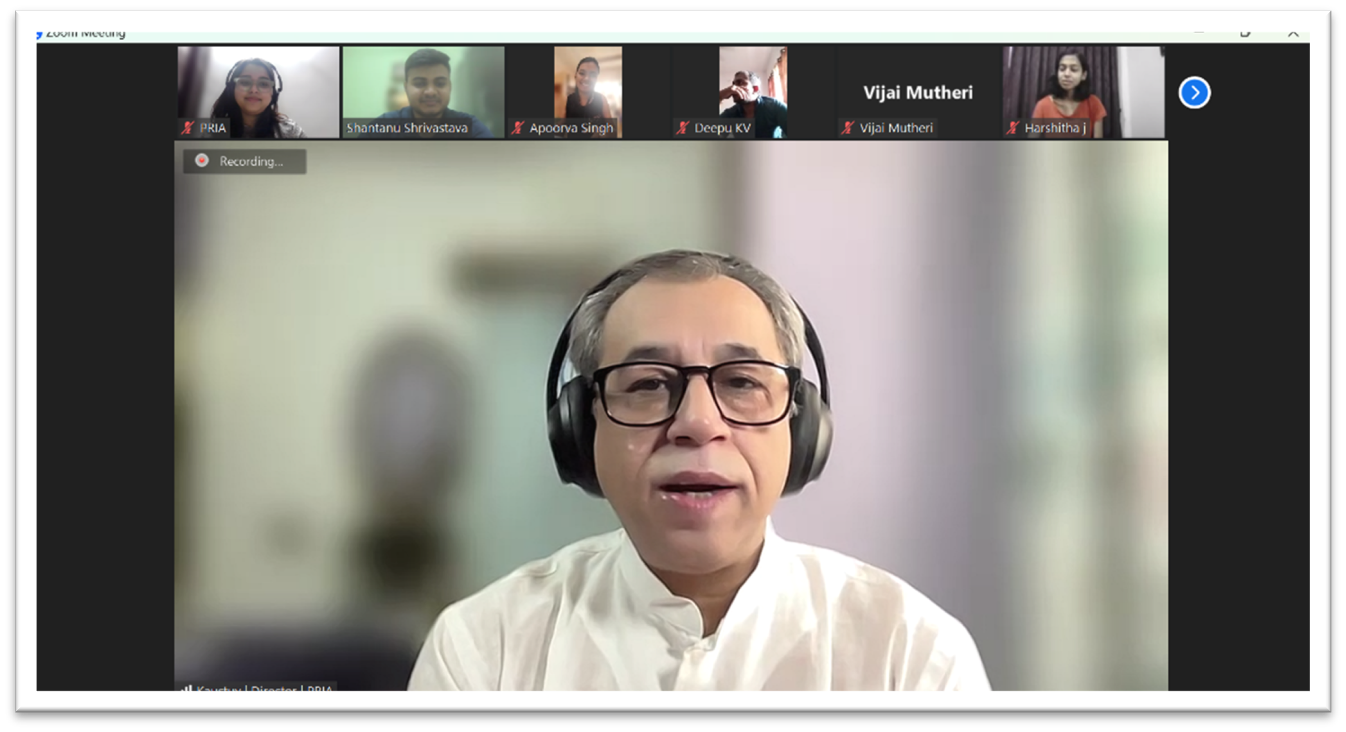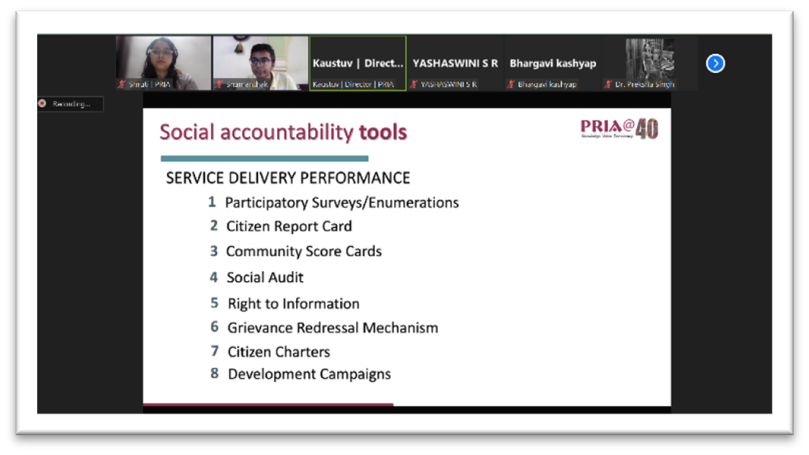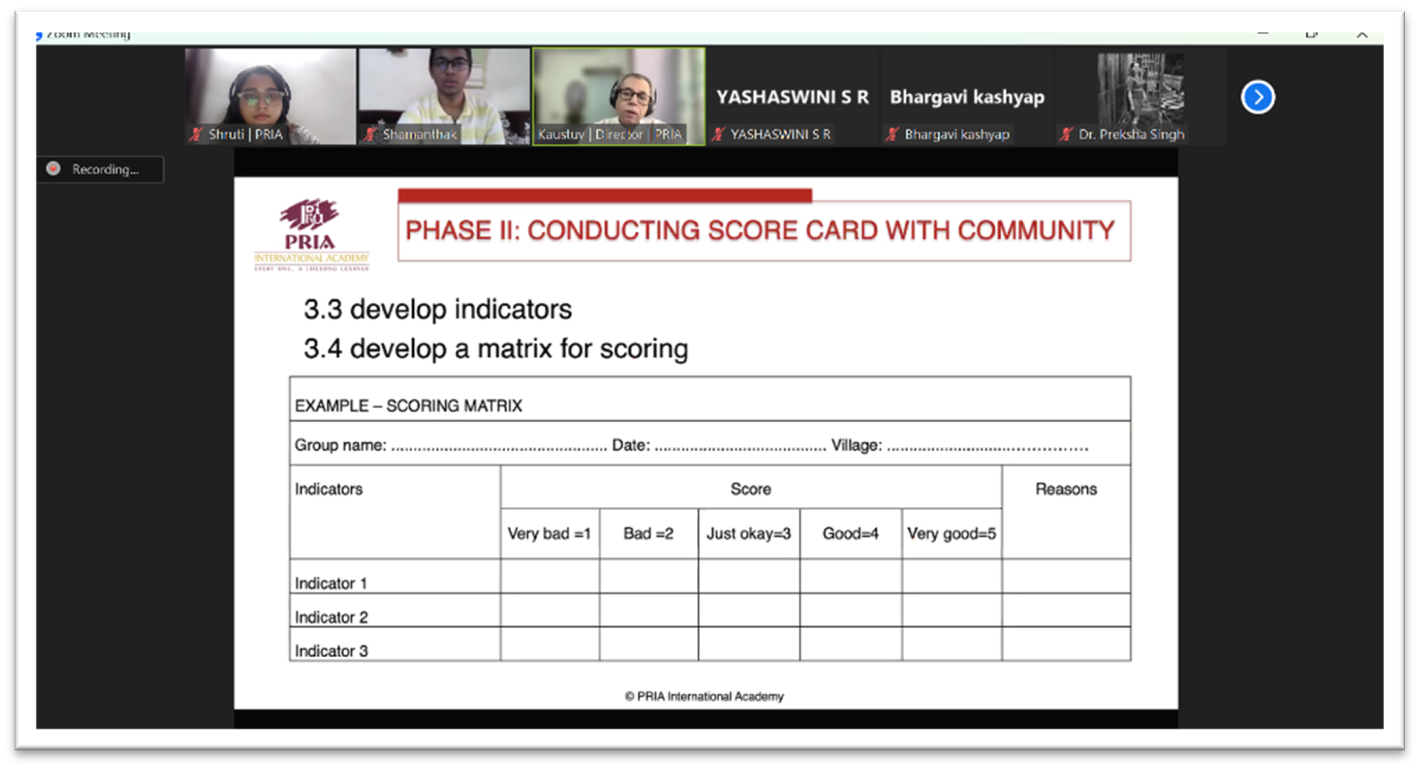The government has the power and authority to get things done. But what can citizens do when the government fails to fulfill its responsibilities? In a democratic country like India, citizens have the power to hold the government accountable. This is called social accountability. This session was conducted by Dr. Kaustuv Kanti Bandopadhya, Director of Participatory Research in Asia.

Since holding the government accountable and keeping it vigilant is one way to practice active citizenship, the session was of immense value from the perspective of the fellowship's desired outcomes, which aim to prepare a cohort of active citizens.
The session began by breaking down the concept of accountability. It was described as a relationship between two actors, A and B, where A is obliged to inform about their actions and justify them to B. B has the power to sanction in the case of eventual misconduct. Finally, the facilitator provided the definition of "accountability" as "de facto constraints on the government's use of political power through requirements for justification of its actions and potential sanctions." The government has power and authority, but when the government fails to fulfill its responsibilities, citizens must have some agency to hold the government accountable.
This foundation was essential for comprehending the broader notion of social accountability. Social accountability is driven by the participation and engagement of citizens and their organisations, either directly or indirectly. Citizens must be empowered to demand accountability from public institutions, the facilitator stressed.
The discussion then flowed into the sub-types of accountability: horizontal, vertical, and diagonal. Horizontal accountability refers to checks and balances within the government, such as the judiciary overseeing the executive branch. Vertical accountability, on the other hand, involves the accountability relationship between the government and citizens, where citizens can demand transparency and responsiveness.
The major part of the discussion revolved around how citizens can hold the government accountable. They can do this by exercising their Right to Information, by making their voices heard by public authorities. However, since one person alone might not be able to demand accountability from public authorities, citizens have the right to organise themselves. Additionally, they have the right to participate in the affairs of public authorities.
Discussing the ways in which citizens and Civil Society Organisations (CSO) have been using tools to seek accountability, Dr. Kaustuv mentioned CSOs' involvement in voter awareness campaigns, discussing citizens' demands with various political parties and influencing their manifestos. Organisations also seek to understand the impact and implementation of a policy through policy research. They organise multi-stakeholder policy dialogues to seek accountability.

The Community Scorecard is a monitoring and assessment tool, and by using it, we bring both the service user and service provider of a particular service program together to jointly analyse the issues underlying service delivery problems and find a common and shared way of addressing those issues. The main goal of the Community Scorecard is to positively influence the quality, efficiency, and accountability with which services are provided at different levels. The core implementation strategy to achieve this goal is using dialogue in a participatory forum that engages both service users and service providers.
Clarifying a fellow's doubt, Dr. Kaustuv mentioned that although accountability involves participation, seeking accountability is not the only way to participate. Therefore, not all participation leads to accountability.

Fellows were then informed about tools to measure service delivery performance, such as Participatory Surveys, Citizen Report Cards, Social Audits, Right to Information, Grievance Redressal Mechanisms, Citizen Charters, and Development Campaigns.
Towards the end of the session, participants practiced the social accountability tool, the "Community Scorecard." This tool enables communities to assess the quality and accessibility of public services, fostering dialogue between citizens and service providers.